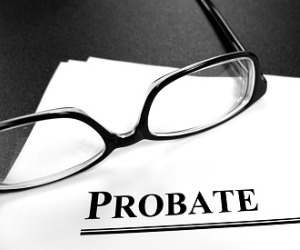According to new research by the probate lending experts at Tower Street Finance, . Inheriting a property generally happens whilst you are in the midst of a grieving process when emotions are high. It is likely you have lots of questions and will probably not know where to start. There will be legal complexities, taxes and other costs to be worked through, and the likelihood of having other members of the family involved in the decision making process can add to the stress and confusion. Hopefully this short summary of what to expect if you anticipate inheriting a property in Okehampton or Tavistock in the future will help you understand the process a little better.
According to new research by the probate lending experts at Tower Street Finance, 58% of UK adults say that they expect to inherit at least one residential property during their lifetime. Inheriting a property generally happens whilst you are in the midst of a grieving process when emotions are high. It is likely you have lots of questions and will probably not know where to start. There will be legal complexities, taxes and other costs to be worked through, and the likelihood of having other members of the family involved in the decision making process can add to the stress and confusion. Hopefully this short summary of what to expect if you anticipate inheriting a property in Okehampton or Tavistock in the future will help you understand the process a little better.

Probate
Probate is the process of settling debts and the deceased’s affairs by the executors of the will. No assets can be handed over to any beneficiary until this process is completed. Probate can take up to a year and can involve a lot of complicated financial, legal and tax work. According to Co-op Legal Services, it can be broken down into five different phases.
- Assets & Liabilities
All the assets of the deceased, such as property and possessions, as well as their debts will be identified as this will determine the value of their estate. Verification of anyone who is entitled to inherit the estate is undertaken at the same time.
- Inheritance Tax
The payment of Inheritance Tax to the HMRC and submission of the Inheritance Tax return. You will also need to confirm who has the legal authority to administer the estate; this is done by applying to the Probate Registry for the grant of representation.
- Liquidation
After the Probate Registry has issued the grant of representation, the liquidation (selling) of the deceased’s assets can begin. This sounds very clinical, but we know what a difficult task this can be, as sorting through and disposing of a loved one’s possessions can be highly emotionally charged, and can trigger many memories. As well as liquidating, you will need to pay the final estate administration expenses to the HMRC as well as any Capital Gains Tax, Income Tax or further Inheritance Tax due to or from the estate.
- Accounts
The preparation of the accounts for the estate will need to be completed. This must show the balance which is to be shared between the beneficiaries. These must then be sent to the executor of the will and other personal representatives for approval.
- Transferring assets
Should there be no challenges to the estate, the transfer of assets to the beneficiaries can be completed.
Inheriting a home with a mortgage
Sadly, life doesn’t always happen as planned. Homeowners may have intended to pass down a mortgage-free property, but this is not always the case. You may find that the deceased had adequate life insurance that can be used to clear the mortgage; otherwise, you will need to have a conversation with the lender to find out their expectations.

A good place to start is reading the terms of the mortgage. This will detail what will happen in the event of the death of the mortgage holder. Often payments are frozen whilst the probate application is being processed, but you may find that interest will continue to be applied. Once probate is granted you can either try to get a mortgage for the property under your name, or alternatively pay off the outstanding mortgage by selling.
Taxes
Speaking to an independent financial adviser is very much advised so you have a clear understanding of the costs involved. Below, we have given you a quick overview, but as all wills, assets and personal savings vary, professional advice should always be sought.
- Inheritance Tax is due if the deceased’s estate (including assets, the property, shares and savings) exceeds £325,000.
- Capital Gains Tax will need to be paid should you decide to sell the property.
- Income Tax is paid should you start receiving a rent from an inherited property such as a buy-to-let or a holiday let.
- Stamp Duty is not due on an inherited property except if one of the beneficiaries buys out the others, but again situations can vary.
Seek expert advice
There are many complexities when it comes to inheriting a property, and like all homes and homeowners, every situation is different, which is why speaking to experts in this field is crucial. If you would to discuss a property you are inheriting in the Tavistock or Okehampton area please pop in to chat with a member of our team over a coffee; we know this is a sensitive time and are committed to providing caring and independent advice around your options for the inherited property.




 by
by 
 by
by 

Share this with
Email
Facebook
Messenger
Twitter
Pinterest
LinkedIn
Copy this link